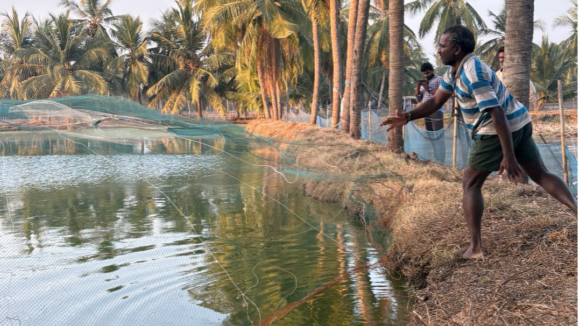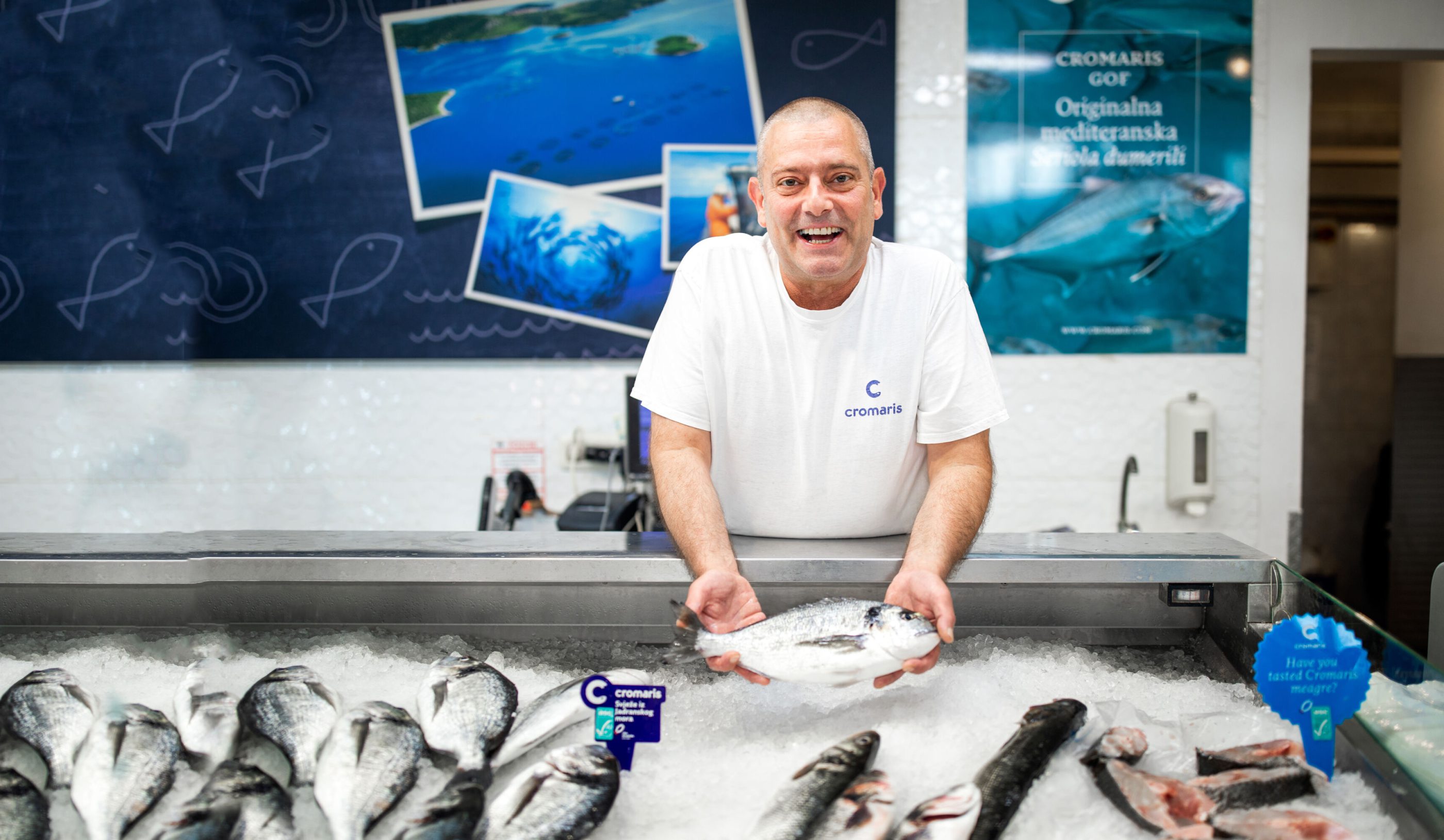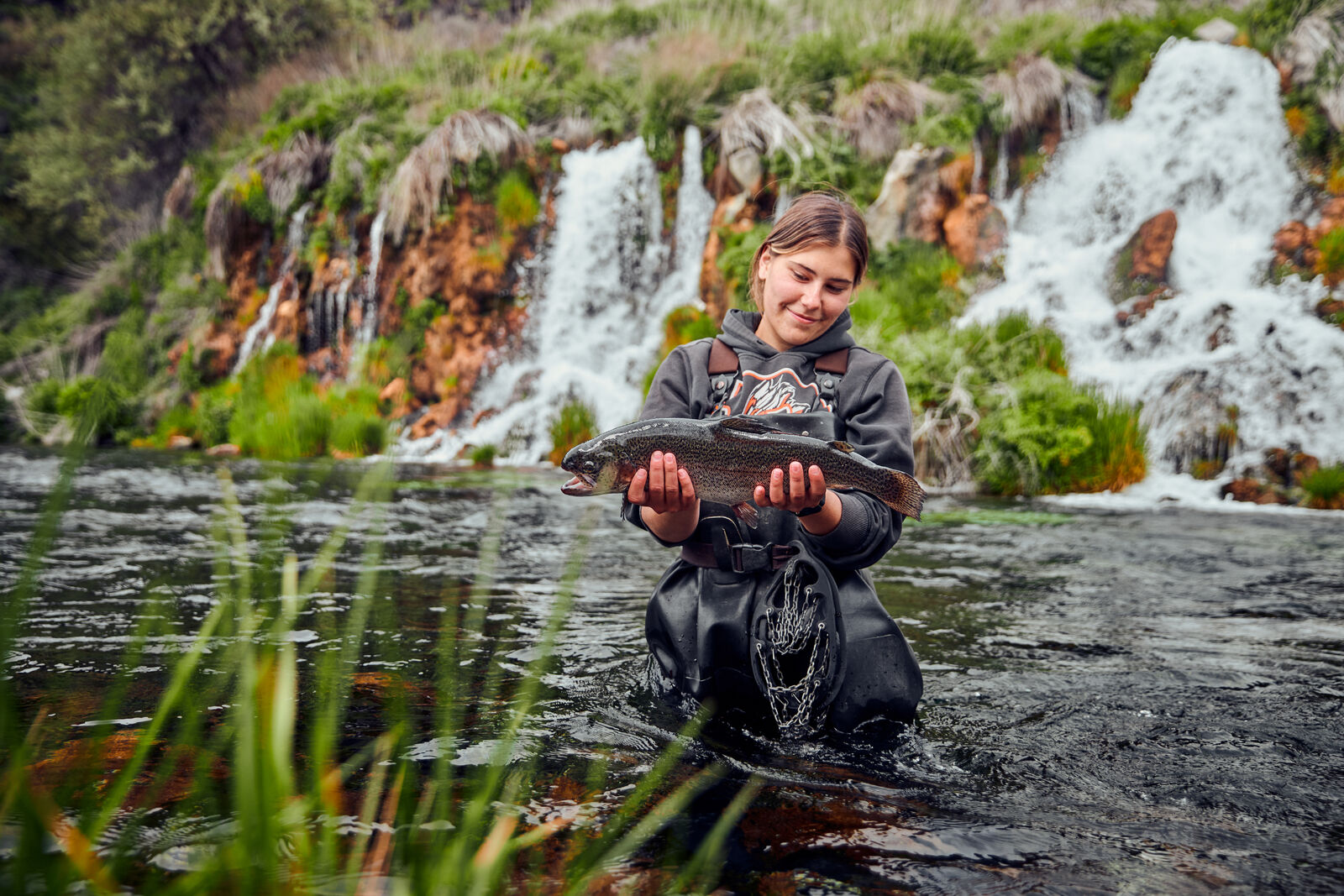
Responsible Seafood Farming and Finance Need to Swim in the Same Direction: Here’s Why
July 31, 2025
Seafood lovers, here’s something you might not know: behind every shrimp, salmon, or tilapia on your plate, there’s a growing movement to make seafood farming more responsible and future-proof—and investors are starting to pay close attention.
We spoke with Ray Dhirani, Head of Capital Markets Outreach at the Aquaculture Stewardship Council (ASC), to understand how smart money is flowing toward sustainable seafood—and why certifications like ASC matter more than ever.
Reflecting on his attendance at recent events like the United Nations Ocean Conference (UNOC) and the Blue Economy & Finance Forum (BEFF), Ray sees both challenges and cause for optimism. While some headline commitments may have fallen short, innovative financial models and partnerships—particularly in developing regions—point to new opportunities.

Ocean Investment Is Still Stuck in Shallow Waters
At the recent United Nations Ocean Conference in Nice, France, global leaders pledged around $10 billion of new capital toward ocean protection. Sounds impressive? Unfortunately, it’s just a drop in the ocean—the United Nations estimates we need $175 billion every year to protect marine ecosystems and support sustainable development. So why isn’t more money flowing to oceans?
“Investors want to fund sustainable ocean projects,” says Ray. “But they need clear rules and trusted standards to de-risk those decisions.”
Without strong regulation and credible data, private finance hesitates. As Standard Chartered’s Head of Nature Oliver Withers puts it, the problem is that “the high seas don’t belong to any one country”—making it hard to govern or protect them effectively.
Investors Want Sustainable Seafood Too

Swimming Together: Uniting Finance and Responsible Seafood Farming
You might look for labels when buying fish. Well, so do banks and investment firms—just on a much bigger scale.
“Frameworks like ASC help investors know a seafood business is serious about sustainability,” Ray says.
The ASC label tells investors and seafood lovers that a farm is doing right by the environment and the people involved. For institutional investors, sustainability certification is a key part of risk assessment. According to Ray, frameworks like ASC are being recognised in influential global policy initiatives such as the Taskforce on Nature-related Financial Disclosures (TNFD). These frameworks not only signpost verifiable sustainability metrics but also help investors assess social and environmental risks within global aquaculture portfolios by focusing on necessary disclosure.
“The breadth of the ASC standard is helpful for investors who are looking to cover social as well as environmental indicators,” says Ray. “ASC being a global standard has also proven useful to investors with large global portfolios.”
The Financial Risk of Ignoring Sustainability
With environmental regulation tightening across markets, seafood farming operations that fail to embed sustainability are exposing themselves to serious financial risks. Not only do they risk falling foul of emerging regulations, but they may also find themselves excluded from capital flows increasingly tied to verified environmental and social impact.
Sustainability is a key driver of ‘licence to operate’ for companies in seafood farming. Business models are more likely to be resilient to shocks if sustainability is built in from the outset.
Ray explains, “The regulatory picture is changing rapidly, and financiers will be looking increasingly for verified impact aligned to the latest science. For longer term investors, aligning to this regulatory framework will be key. From a market standpoint, aligning to the ASC standard increases resilience for investors and reduces sustainability risks.
“It also helps to evidence the claims that the finance sector is making around impact. Additionally, ASC holds unique data points to evidence positive impact – both on social as well as environmental areas.”
Not Certified Yet? There’s Still a Way In
Some farms aren’t ASC certified yet, but they’re trying to improve. That’s where the Improver Programme by ASC comes in.
“Impact investors recognise that some farms are not yet ready for certification; however, if they can engage with the Improver Programme and credibly demonstrate their path toward sustainability in aquaculture,” Ray says.
“As a result, then they may be able to fit some investor’s impact criteria.”
What’s Next? Innovation on the Horizon
As the financial sector accelerates its shift toward nature-positive and climate-aligned investing, tools like the ASC certification are emerging as vital links between sustainability and finance. Whether through full certification or participation in improvement programmes, aquaculture businesses have a clear opportunity to align with the future of responsible investment.
“There’s still a long way to go, but on the bright side, during UNOC and BEFF we saw innovation from some leading financiers – including some new blended financial models utilised in developing countries,” Ray concludes.
Learn more

Shrimp, Sustainability, and Scale: ASC and SFP Launch Roadmap for Aquaculture Reform

ASC Digital Hub Redefines Access to Certification Documentation

Certified for Change: 18 Feed Mills achieve ASC Feed Certification so far in 2025




